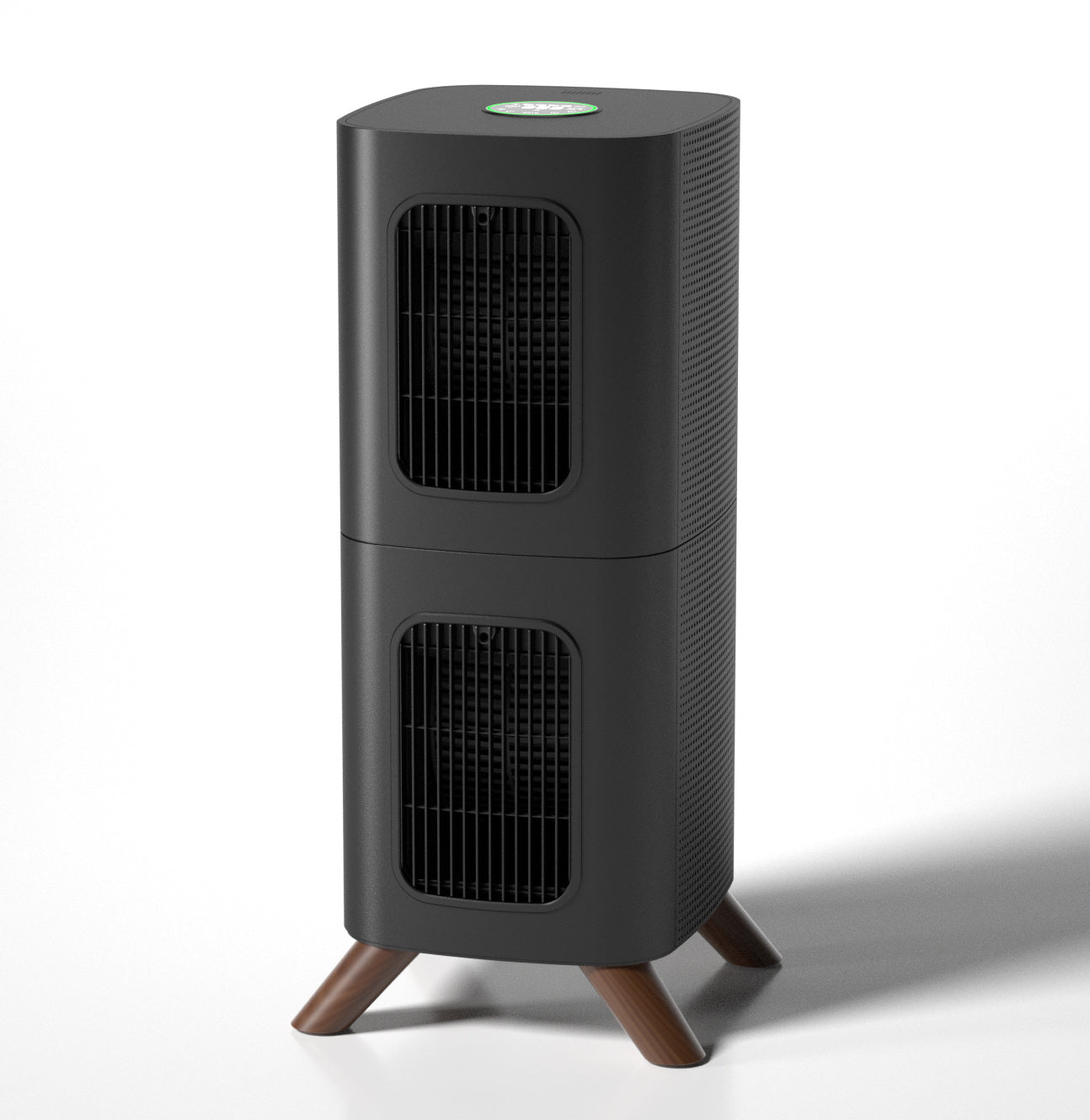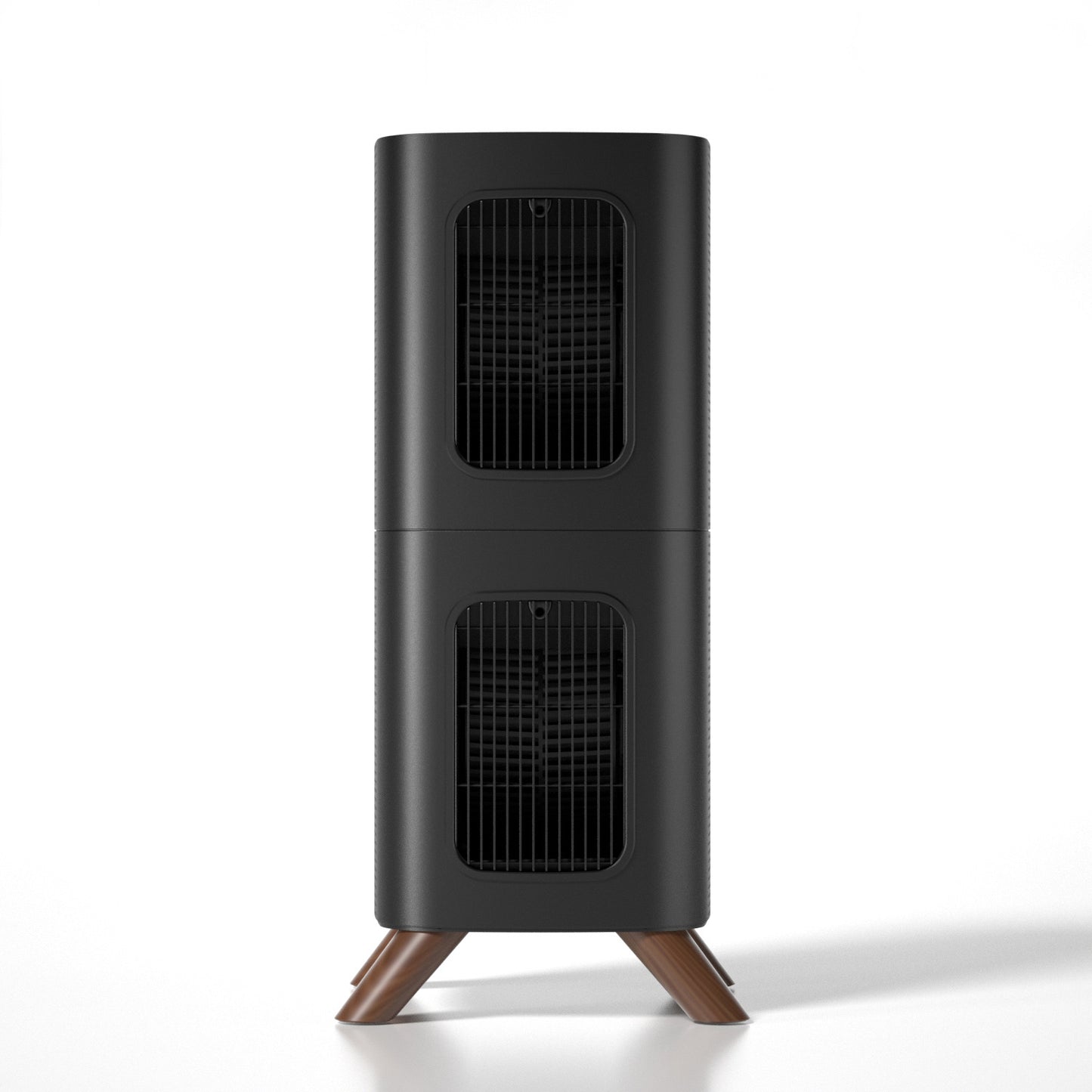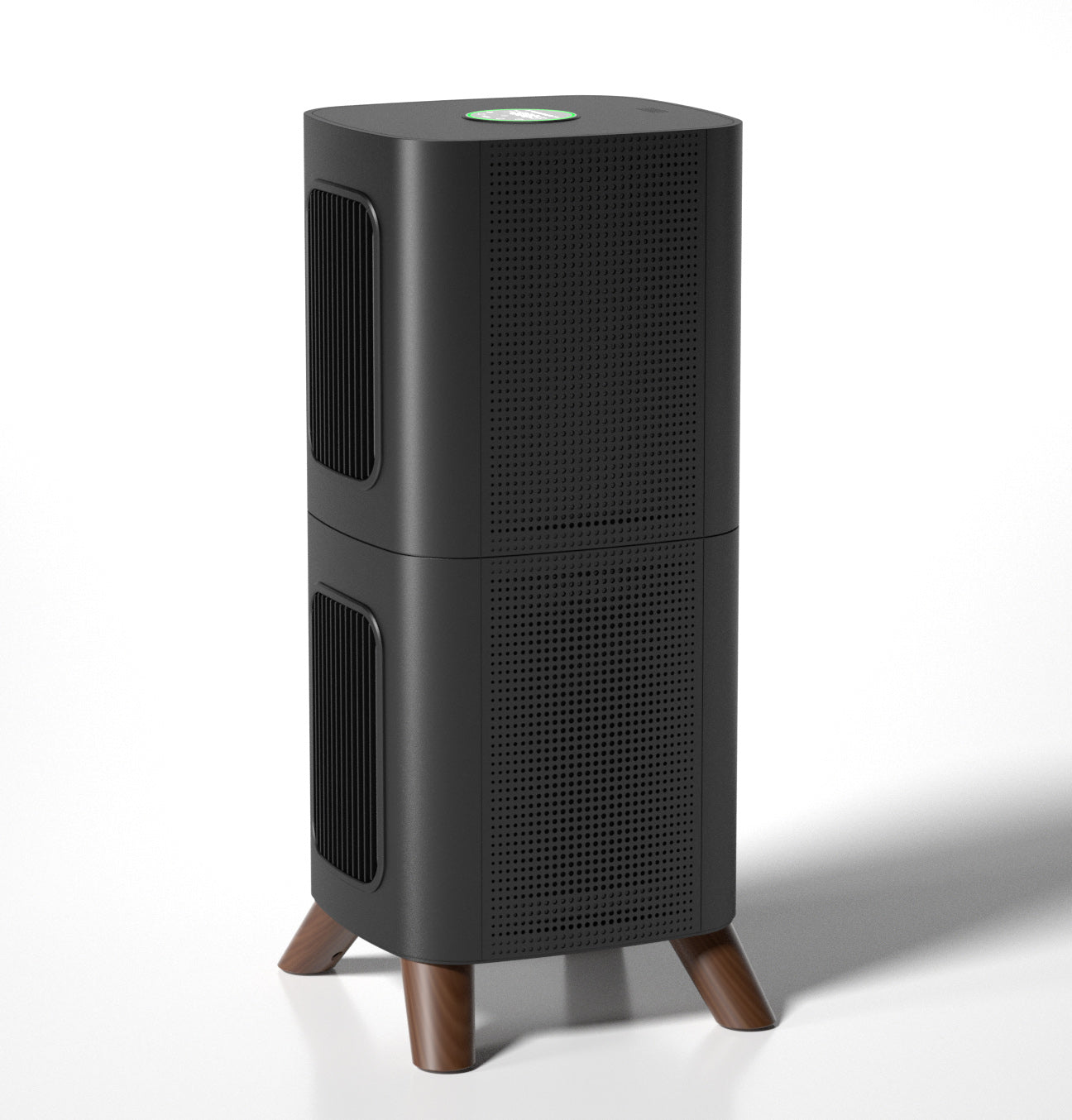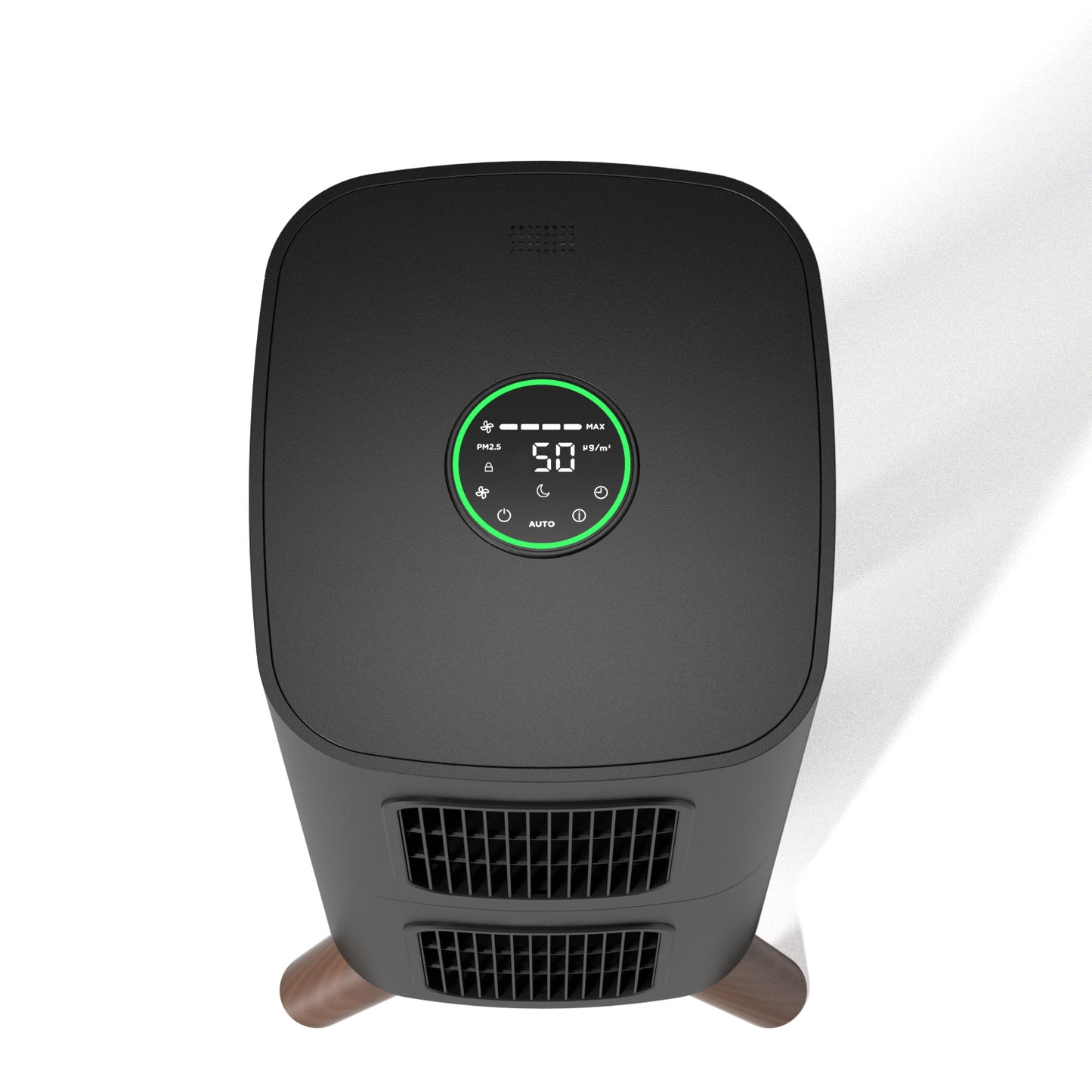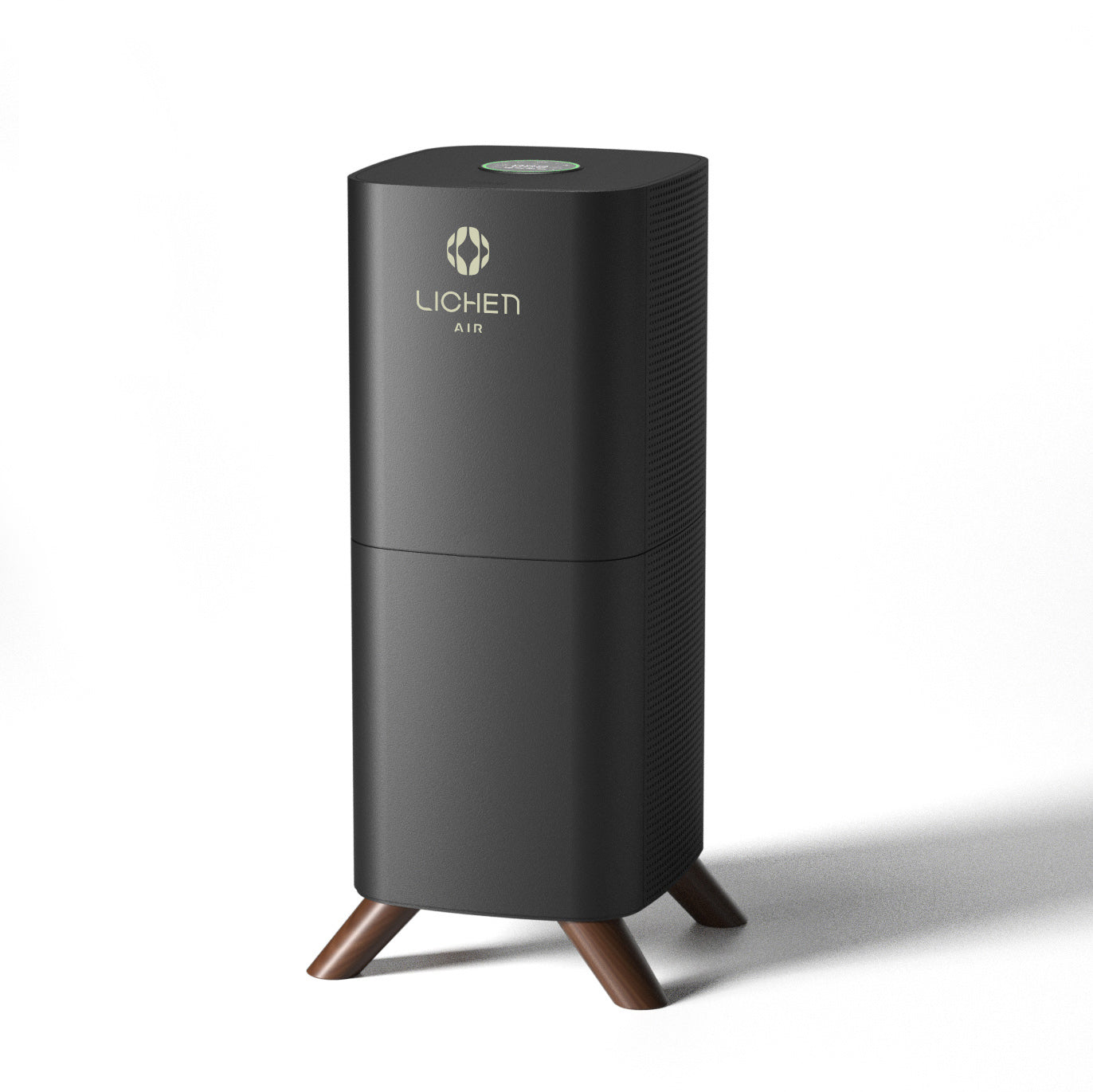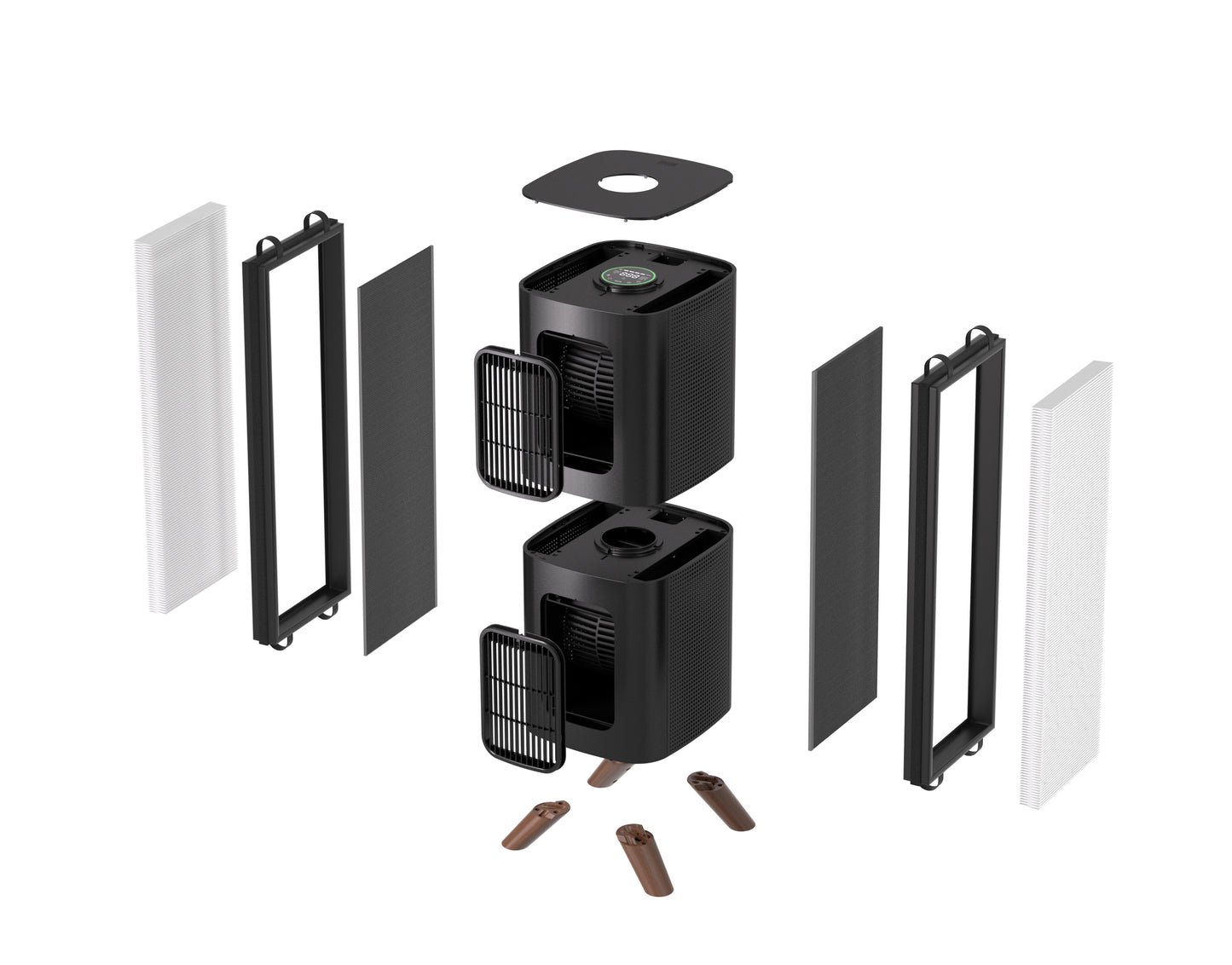
How Clean Air Boosts Your Brain
Share
When we think about brain health, we often hear about the importance of good food, regular exercise, and quality sleep. But there’s a silent force all around us that profoundly affects our cognitive performance, mood, and long-term brain function: the air we breathe.
We breathe 20,000 times a day, and powerful research over the last decades has revealed that what’s in this air doesn’t just impact our lungs. Our air quality massively affects brain health, influencing mood, cognition, behavior and so much more. Here’s why cleaner air is the biggest untapped opportunity for better brain health
1. What’s invisible is ignored
It’s easy to point to junk food or stressful media and describe the risks posed to our brain health. Yet most people are completely unaware of a far less obvious influence on our brains that’s always surrounding us. Each breath we take contains a host of particles and gases that can influence our physiology. Understanding this is an incredible opportunity to take steps for better brain wellness.
Our air is mostly made of nitrogen and oxygen gas. But it’s also filled with tiny particles called “particulate matter.” While many components of air are associated with brain health and behavior, the best-studied and most concerning air pollutant is particulate matter of 2.5 microns or smaller (called “PM 2.5”). PM 2.5 is unique because its small size allows it to be absorbed through our lungs where it can influence our bodies and brains.
There are over 10,000 peer-reviewed studies on PM 2.5, and a sizable and recent set of these studies concern the role of these pollutants on our brain health. PM 2.5 exposure is linked to, among other things, worse mental health, worse cognition, violent behavior and worse test-taking scores.
2. Air pollution exposure mostly happens indoors
Like it or not, modern day humans have become an indoor species. We spend upward of 90% of our day in our homes, offices, schools and vehicles. This means that most of the air we breathe is indoor air. The good news is that our enclosed environments give us far more agency over the quality of what we’re breathing, which presents an excellent opportunity to protect our brains and bodies with simple choices.
Some of the top contributors to indoor air pollution include cooking, incense and candles, tobacco products, building materials (especially new materials), home cleaning supplies and outdoor air pollution that makes its way inside.
3. Many wellness products increase indoor air pollution
Recent investigations into indoor air pollution have shed light on a concerning trend: wellness products are significantly contributing to unhealthy indoor air that may harm the brain. Among the top offenders are incense, scented candles and air fresheners. Incense has been found to produce high levels of PM 2.5, and in a telling 2020 study, higher exposure to indoor incense was associated with worse cognitive performance in older adults along with changes in brain connectivity. More acutely, a study in Nature Scientific Reports from 2019 showed a significant decline in cognitive function after just one hour of exposure to an indoor candle. Air fresheners and scented candles, while incredibly popular, are major sources of air pollutants called “volatile organic compounds” or VOCs which have been shown to relate to worse cognitive function.
4. Cleaner air for enhanced brain function
If worse air quality may lead to worse brain outcomes, does cleaning up the air have the opposite effect? Large-scale interventions to clean up the air have provided some telling results. In an analysis of over 8500 people in China, researchers tracked cognitive abilities against decreases in outdoor air pollution. They observed powerful protective effects on brain function when air pollution levels decreased. At a more focal level, researchers have also found improvements in brain function with reduction in PM 2.5 levels in the bedroom while people sleep.
How to help clean up your air today
- Use an air purifier with a verified HEPA filter in your home or office.
- Ventilate indoor spaces with fresh outdoor air when pollution levels are low.
- Replace scented paraffin candles with beeswax candles and minimize total candle burning
- Replace scented laundry pods with fragrance free detergents
- Swap the air fresheners for simmered spices or fresh flowers
- Ventilate and purify your kitchen air while cooking
- Skip the incense or significantly limit its use


